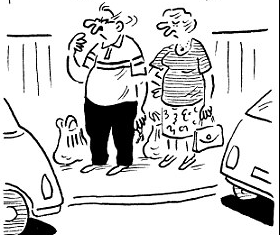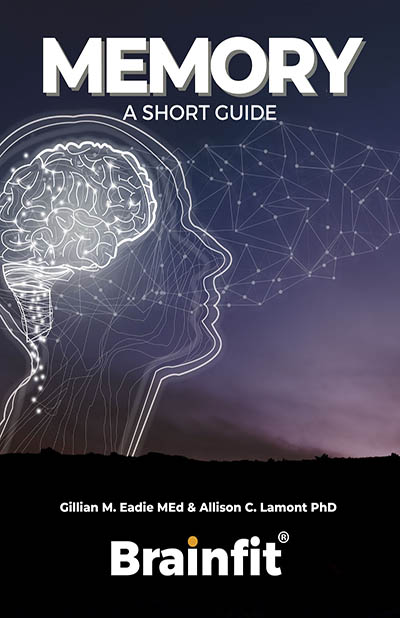I frantically dialled his mobile. “Help me! I can’t find the car!!”
I wasn’t expecting to hear, “Well, what do you expect me to do about it?!
I expected directions, a calm voice giving me some clues …….
isn’t that what husbands are for?
Is this your worst nightmare, too?
A crowded parking lot, cars as far as the eye can see, in every direction
And, NOT A CLUE where you left yours?
Don’t you HATE it when time is against you and you can’t find your keys or your wallet!
Why does it happen?
Well, it’s quite simple really – your just weren’t paying enough attention when you parked.
Everyday you are being bombarded with information – things you see, touch, taste, hear and smell. If you remembered it all there your brain would explode! (Well, not really, but you get the idea.) Contrary to media buzz that urges us to multi-task every day, the human brain can focus on only one thing at a time. Not everything needs to be remembered and your brain has it all worked out how to make sure you remember only what is important to you.
Probably when you were parking, you were thinking about the shop you needed to get to, how much time you had until you needed to be driving out again and how you were going to handle your teenager who flew out of the house this morning, slamming the door.
Until recently it was believed that by the age of 50, heaps of brain cells were lost every day and that they were gone for good. It’s true it does become harder to remember where you parked, where keys were left, names, dates or what was done two days ago. But science has established that it’s more likely your memory powers have dulled simply because your brain (and maybe your body!) is no longer in tip top shape.
Forgetting and mis-remembering are normal parts of everyday life – at all ages. Scientists are just beginning to understand why people forget. From the age of 40 or 50 most people notice some forgetting. Without regular brain exercise, the number of synapses (meeting points between neurons) diminishes so less information can be transmitted. But research shows you have the power to improve your memory, regrow brain connections and sharpen your overall brain health, and that the normal degree of changes in memory, abstract thinking, reasoning, imagination and insight caused by ageing varies from person to person
Your brain will quickly ‘forget’ anything that you have not committed to long-term memory so, if you put down your keys or wallet – or even park your car – on autopilot, without thinking, then your memory will let you down. To remember where things are, you need to focus on the item, concentrate on where it is being placed. You need to create a ‘memory trace’. There are ways to help your memory, though. Try these tips for remembering where things are:
-
Always remember where your car is parked:
Look for the closest parking spot, keep track of the number and level of your parking spot, jot this down and look out for landmarks like stores, large signs or trees. You can even take a photo with your phone if you are really having trouble with this one!
-
Always know where your keys, glasses and wallet are:
Designate a dish as your official wallet and glasses holder, keep this dish (or simply your wallet) on a table you’ll see it on your way out. Say out loud: I am putting my wallet in this dish.
Leave keys on a specific hook and always hang your keys up there. Make a point of it. You can attach a paging or remote locating device to your key-chain. Giving a trusted friend or family member a spare might save your sanity in an emergency.
You’ll find lots more tips like these in the great new book by Allison Lamont PhD and Gillian Eadie, 7-Day Brain Boost Plan. And if you are ready to start our free sthree-day Brain Tune™ course, get it now.
For further information, read Keep that Boomer Brain Growing
——————————————————





